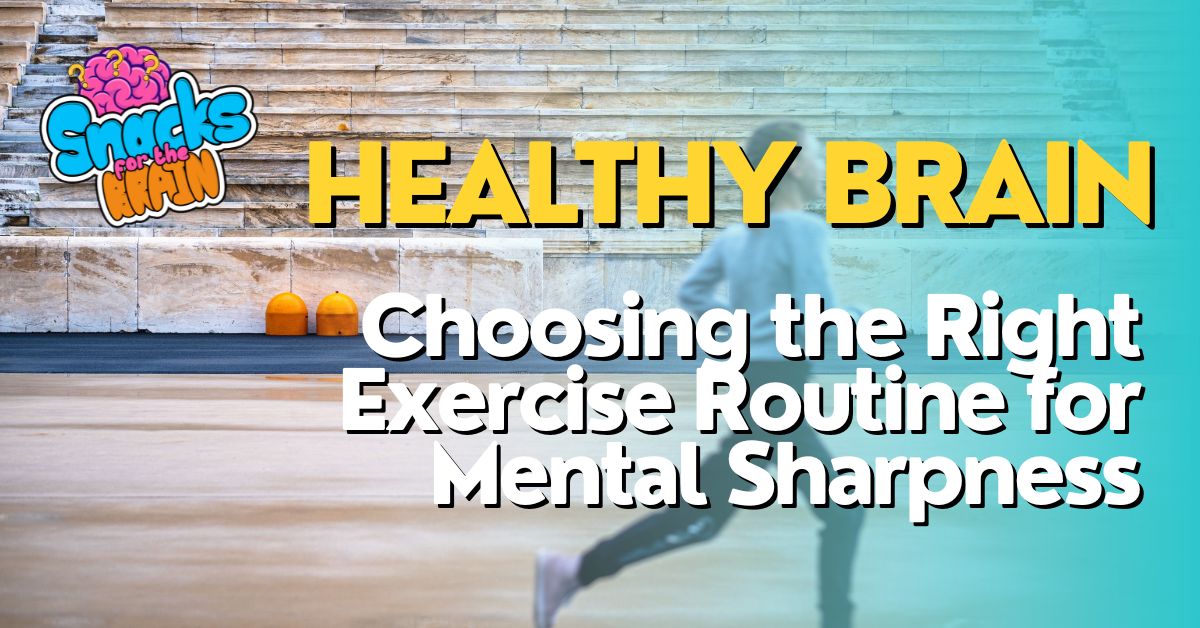Cognitive training is a crucial aspect of maintaining brain health, especially for seniors. As we age, it is natural for cognitive decline to occur. However, with the right training, this decline can be slowed down, allowing seniors to maintain their independence and quality of life for longer.
Cognitive decline is a normal part of the aging process. It can manifest in various ways, such as memory loss, decreased mental agility, and difficulty focusing. These declines can have a significant impact on daily life and overall well-being. Seniors may struggle with everyday tasks, experience frustration and anxiety, and feel a loss of confidence in their abilities.
Key Takeaways
- Cognitive training is important for seniors to maintain brain health and prevent age-related cognitive decline.
- Common age-related cognitive declines include memory loss, decreased focus, and slower mental agility.
- Cognitive training can enhance memory, focus, and mental agility through brain games, meditation, and other techniques.
- Personalized approaches to cognitive training are important to tailor to individual needs.
- Combining cognitive training with other healthy habits such as exercise, nutrition, and sleep can further improve brain health.
Common Age-Related Cognitive Declines: What to Look Out for
Memory loss is one of the most common cognitive declines that seniors experience. They may have difficulty remembering names, dates, or where they placed certain items. This can be frustrating and may lead to feelings of embarrassment or isolation.
Decreased mental agility is another common cognitive decline among seniors. They may find it harder to think quickly or solve problems efficiently. This can impact their ability to make decisions, engage in conversations, or perform tasks that require mental flexibility.
These cognitive declines can have a significant impact on daily life and overall well-being. Seniors may struggle with everyday tasks such as managing finances or following medication schedules. They may also experience increased anxiety and frustration as they try to navigate through these challenges.
Benefits of Cognitive Training: Enhancing Memory, Focus, and Mental Agility
The benefits of cognitive training for seniors are numerous. One of the most significant benefits is improved memory. Through cognitive training exercises and activities, seniors can strengthen their memory recall abilities and enhance their overall memory function.
Cognitive training also helps improve focus and attention span. Seniors who engage in regular cognitive exercises are better able to concentrate on tasks and maintain their attention for longer periods. This can be particularly helpful in situations that require sustained focus, such as reading or participating in conversations.
Furthermore, cognitive training enhances mental agility. Seniors who engage in activities that challenge their cognitive abilities, such as puzzles or brain games, can improve their problem-solving skills and mental flexibility. This can have a positive impact on their ability to navigate through daily life and adapt to new situations.
Types of Cognitive Training: From Brain Games to Meditation
There are various types of cognitive training available for seniors. One popular option is brain games. These games are designed to challenge and stimulate different areas of the brain, such as memory, attention, and problem-solving. They can be played on smartphones, tablets, or computers, making them easily accessible for seniors.
Another type of cognitive training is meditation. Meditation involves focusing one’s attention and eliminating the stream of thoughts that often clutter the mind. Regular meditation practice has been shown to improve memory, attention, and overall cognitive function. It also promotes relaxation and reduces stress, which can have a positive impact on brain health.
Puzzles, such as crosswords or Sudoku, are also effective forms of cognitive training. These activities require problem-solving skills and mental flexibility, which can help seniors maintain and improve their cognitive abilities.
Tailoring Cognitive Training to Individual Needs: Personalized Approaches
It is essential to tailor cognitive training to individual needs. Every person is unique, and what works for one senior may not work for another. Personalized approaches to cognitive training can be more effective than a one-size-fits-all approach.
To tailor cognitive training to individual needs, it is important to consider factors such as interests, abilities, and goals. Some seniors may prefer brain games that challenge their memory skills, while others may enjoy puzzles that require problem-solving abilities. By understanding individual preferences and strengths, it is possible to create a personalized cognitive training plan that is engaging and effective.
How to Get Started: Finding the Right Cognitive Training Program

Seniors who are interested in cognitive training can start by researching and selecting the right program for their needs. There are many resources available online that offer cognitive training exercises and activities specifically designed for seniors.
When researching cognitive training programs, it is important to consider factors such as credibility, user reviews, and the specific cognitive abilities targeted by the program. It may also be helpful to consult with a healthcare professional or cognitive training specialist who can provide guidance and recommendations based on individual needs.
Once a program has been selected, it is important to establish a routine and commit to regular practice. Consistency is key when it comes to cognitive training, as regular practice allows for the brain to adapt and improve over time.
Overcoming Challenges: Strategies for Sticking to Your Cognitive Training Routine
Starting a new routine can be challenging, especially for seniors who may already have busy schedules or other commitments. However, there are strategies that can help overcome these challenges and stick to a cognitive training routine.
One strategy is to set specific goals and track progress. By setting achievable goals and tracking progress over time, seniors can stay motivated and see the tangible benefits of their cognitive training efforts. Celebrating small successes along the way can also provide a sense of accomplishment and further motivation.
Another strategy is to incorporate cognitive training into daily routines. For example, seniors can set aside a specific time each day for brain games or puzzles. By integrating cognitive training into existing routines, it becomes easier to establish a habit and ensure regular practice.
Combining Cognitive Training with Other Healthy Habits: Exercise, Nutrition, and Sleep
Cognitive training is just one piece of the puzzle when it comes to maintaining brain health. It is important to combine cognitive training with other healthy habits, such as exercise, nutrition, and sleep.
Regular physical exercise has been shown to have numerous benefits for brain health. It increases blood flow to the brain, promotes the growth of new brain cells, and enhances cognitive function. Seniors should aim for at least 150 minutes of moderate-intensity exercise per week, such as brisk walking or swimming.
A healthy diet is also crucial for brain health. Seniors should focus on consuming a balanced diet that includes fruits, vegetables, whole grains, lean proteins, and healthy fats. Certain foods, such as blueberries, walnuts, and fatty fish, have been shown to have specific benefits for brain health.
Lastly, getting enough sleep is essential for cognitive function. Seniors should aim for 7-9 hours of quality sleep each night. Establishing a regular sleep routine and creating a sleep-friendly environment can help improve sleep quality.
Measuring Progress: Tracking Cognitive Improvements Over Time
Tracking cognitive improvements over time is important to measure progress and celebrate successes. There are various ways to measure cognitive improvements, such as keeping a journal of daily cognitive training activities and noting any changes in memory, focus, or mental agility.
Seniors can also take advantage of online cognitive assessments that provide objective measures of cognitive function. These assessments can be taken periodically to track improvements and identify areas that may need further attention.
It is important to remember that cognitive improvements may not happen overnight. Consistent practice and patience are key when it comes to cognitive training. By tracking progress over time, seniors can stay motivated and see the positive impact of their efforts.
Maintaining Brain Health for a Fulfilling Life as You Age
In conclusion, cognitive training is crucial for seniors to maintain brain health and enhance their overall well-being. Cognitive decline is a natural part of aging, but with the right training, it can be slowed down.
By engaging in regular cognitive training exercises and activities, seniors can improve their memory, focus, and mental agility. This can have a significant impact on their daily life, allowing them to maintain their independence and quality of life for longer.
It is important to tailor cognitive training to individual needs and find the right program that works for each senior. By combining cognitive training with other healthy habits, such as exercise, nutrition, and sleep, seniors can further enhance their brain health.
Tracking progress and celebrating successes along the way is essential to stay motivated and continue with cognitive training. Seniors should prioritize their brain health and make it a part of their daily routine to maintain a fulfilling life as they age.
If you’re interested in cognitive training for seniors and want to explore more techniques to maintain brain health as you age, you should check out this informative article on Intelligence’s N Hacks website. They provide valuable insights and tips on how to improve memory and recall abilities. Discover effective techniques to remember what you’ve learned and enhance your cognitive skills. Don’t miss out on this valuable resource! Click here to read the article.
FAQs
What is cognitive training?
Cognitive training is a type of mental exercise that aims to improve cognitive abilities such as memory, attention, and problem-solving skills.
Why is cognitive training important for seniors?
Cognitive training is important for seniors because it can help maintain brain health as they age. It can also help prevent or delay cognitive decline and reduce the risk of developing dementia.
What are some examples of cognitive training exercises?
Examples of cognitive training exercises include crossword puzzles, Sudoku, memory games, and brain training apps.
Can cognitive training improve memory?
Yes, cognitive training can improve memory. Studies have shown that regular cognitive training can improve memory performance in seniors.
Is cognitive training effective for preventing dementia?
While cognitive training may not prevent dementia entirely, it can help delay the onset of symptoms and reduce the risk of developing dementia.
How often should seniors engage in cognitive training?
Seniors should engage in cognitive training regularly, ideally on a daily basis. Consistency is key when it comes to maintaining brain health.
Are there any risks associated with cognitive training?
There are no known risks associated with cognitive training. However, it is important to consult with a healthcare professional before starting any new exercise program.






